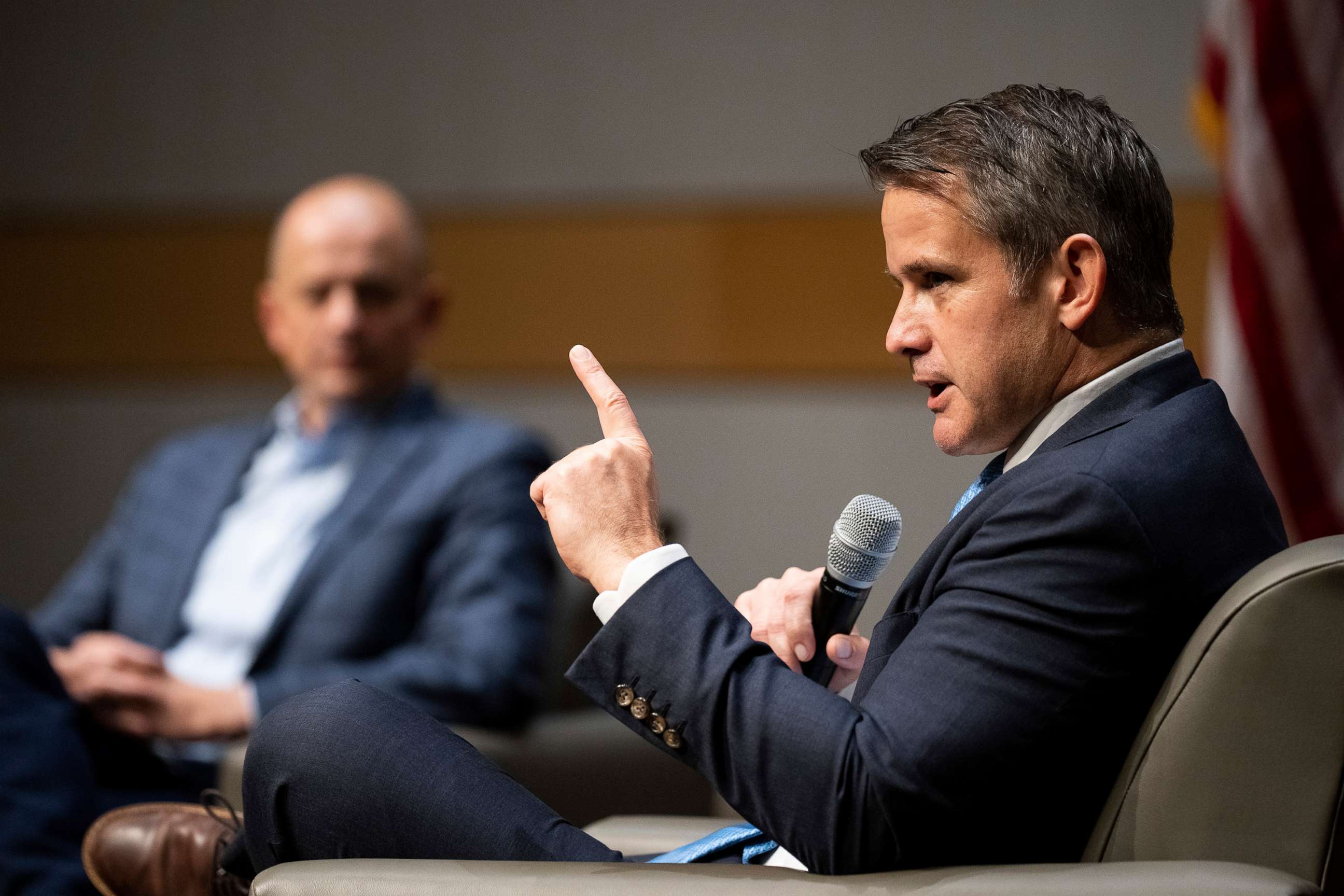Rep. Kinzinger welcomes Griner's release but worries prisoner swap could encourage more hostage-taking
The Illinois Republican also addressed possible Jan. 6 criminal referrals.
Rep. Adam Kinzinger on Sunday celebrated the release of Brittney Griner from Russia but said he was worried about the future "ramifications" from prisoner swaps like the one that earned Griner's freedom.
"We can be glad she's home, and we are, but also recognize that we are changing our no-negotiation policy and that could have real ramifications in the future," Kinzinger, R-Ill., told ABC "This Week" co-anchor Martha Raddatz.
In exchange for Griner's release -- after she pleaded guilty to drug charges for, she said, inadvertently bringing a vape cartridge with hashish oil into Russia -- the U.S. freed notorious former arms dealer Viktor Bout, who was convicted of conspiring to kill Americans, to supply anti-aircraft missiles and of aiding a terrorist organization.
Kinzinger, who sits on the House Foreign Affairs Committee, is among those criticizing that deal, in part because it did not include Marine veteran Paul Whelan, who has been in custody in Russia for some four years on espionage charges the White House says are false.
After news that the WNBA star was returning to the U.S., Kinzinger tweeted a letter Whelan wrote to him in 2019 and directed a message to President Joe Biden: "There is no place for weakness when it comes to lives of innocent Americans."
Raddatz noted that the Biden administration has defended the swap by saying that it came down to either no Americans or only Griner coming home -- that Russia would not agree to free Whelan. Raddatz asked Kinzinger whether the government should have kept pushing for Whelan, too, or left Griner behind.

"This isn't one or the other," Kinzinger said, adding, "We love that Brittney's home."
But he cited both Whelan's case and that of Marc Fogel, a teacher sentenced to 14 years in a Russian penal colony on marijuana charges. "The question is, where is he in these negotiations as well?" Kinzinger said.
"It is a tough decision you have to make," he acknowledged, but he said that the Biden administration had been overly accommodating in its approach.
"If you make it clear that you're willing to take a deal no matter what, you're going to get a bad deal," he said.
"I do worry about the implications that could have for future hostage taking if any country decides that we have somebody in our procession that they want back, they could just, obviously, arrest anybody and think that we would negotiate them away," he said.
White House National Security Council spokesman John Kirby said in his own appearance on "This Week" on Sunday that the administration acknowledges arguments similar to Kinzinger's but that President Biden has put "accountability measures" in place to make the act of hostage-taking more difficult.
Kinzinger, though, said Griner's case could embolden bad actors.
"We have to recognize wide-eyed that right now, as Americans, we have made it clear that we are willing to do anything to bring a single American home. And there are people that are watching that," he said.
Importance of possible Jan. 6 criminal referrals
Kinzinger was also asked on "This Week" about the House Jan. 6 committee, on which he is a member, which is finishing its report and weighing possible criminal referrals after some 18 months of investigation.
Kinzinger said he didn't want to get ahead of the panel's decision but that any referrals related to the Capitol attack would be a way to highlight where federal law enforcement should direct their parallel investigation.
"The criminal referrals themselves aren't necessarily something that is going to wake [the Department of Justice] up to something they didn't know before," he said. "But I do think it will be an important symbolic thing that the committee can do -- or even more than symbolic, just very clear that Congress thinks a crime has been committed here and the DOJ should investigate it."
The question of what referrals to potentially make to the Department of Justice has long hovered over the committee's work. Its report is set to be released on Dec. 21.
"This is all about telling the American people about what happened and leaving with them the opportunity to say, 'Democracies can have bad days, but how we come back from those bad days is how we'll be defined,'" Kinzinger said.




